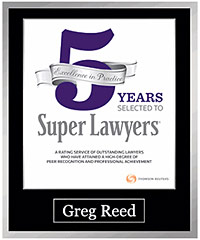Chronic Pain Syndrome and Qualifying for SS Disability Benefits
Can I get disability benefits if I am suffering from the effects of Chronic Pain Syndrome?
Author: Attorney Lonnie Roach
Updated: 10/18/2023
Chronic pain is one of the main reasons people see a doctor.
More than 50 million adults in the United States suffer from chronic pain and new cases are more common than diabetes, depression or high blood pressure. Pain is the body’s normal reaction to an injury; as the body heals, pain usually goes away, but when pain continues for three to six months it takes a toll on a person’s emotional and physical health, impacting their work and home life. If you are suffering from the effects of Chronic pain syndrome you may qualify for disability benefits.

If you are suffering from the effects of chronic pain syndrome and have been denied disability don’t give up, almost 70% are denied initially! Just call 512-454-4000 for a free, no obligation consultation to learn what your options are.
Approximately 25% of people with long lasting pain will develop chronic pain syndrome (CPS) and experience symptoms beyond pain like depression and anxiety.
Chronic pain syndrome usually starts with an injury or a painful medical condition, like one of those listed below:
- Arthritis
- Back pain
- Headaches
- Muscle strains and sprains
- Broken bones
- Fibromyalgia
- Repetitive stress injuries such as carpal tunnel syndrome
- Nerve damage
- Cancer
- Inflammatory bowel disease or irritable bowel syndrome
- Surgery
- Ulcers
- Lyme disease
- Endometriosis
These conditions and accompanying symptoms can cause you to miss work and jeopardize your ability to maintain employment.
Can I qualify for SSDI if I have chronic pain syndrome?
Chronic pain syndrome often leads to frequent absences from work.
A person who misses too many days of work because of chronic pain may not be able to maintain a full-time job and may not be employable. Unfortunately, pain is subjective and hard to measure or prove and the Social Security Administration does not consider chronic pain to be a disability, nor is it listed as an impairment in the Blue Book. To qualify for Social Security Disability Income, you must show you have a medically determinable mental or physical impairment (MDI) that is established by objective symptoms and laboratory tests. Alternatively, you could provide evidence of a mental impairment, such as somatoform pain disorder (a form of mental illness that causes one or more bodily symptoms, including pain), to meet the MDI requirement.
Your best chance to qualify for SSDI with chronic pain syndrome may be providing evidence that your chronic pain stems from another medical condition listed in the Blue Book that is related to or causes chronic pain, such as:
- Inflammatory arthritis (Section 14.09);
- Back injuries (Section 1.15, Section 1.16));
- Neurological disorders (Section 11.00);
- Chronic kidney disease (Section 6.02)
- Inflammatory bowel disease (Section 5.06);
- Somatic symptom and related disorders (Section 12.07).
If your symptoms don’t match the criteria of a listed disorder, you may still qualify if you can demonstrate that your medical condition prevents you from working at your old job or any other job.
Social Security is primarily interested in your functional limitations and how they impact your daily life and chronic pain can certainly affect your ability to do physical work or sedentary work. Social Security will conduct a Residual Functional Capacity (RFC) assessment to evaluate your physical and mental capabilities to determine if there is any job you can do, taking into consideration your age, education and whether or not you can drive. Social Security will evaluate how your symptoms affect your daily activities and ability to perform basic work activities.
Among the factors Social Security will consider are:
- The location, intensity, duration and frequency of your pain;
- Factors that trigger your pain or make it worse;
- Medication you take to relieve pain and their side effects;
- Treatments used to reduce pain such as physical therapy or acupuncture;
- Any other practices, such as applying ice or lying down, you use to manage pain
Your medical records must prove a loss of function and should include:
- Diagnosis from a qualified medical professional (preferably with experience in treating chronic pain) that confirms there is a physical impairment causing your symptoms
- Results of a physical exam
- Laboratory tests
- X-rays, MRIs, CT scans
Social Security will want to see your doctor’s opinion on your functional limitations and how long your chronic pain is expected to limit your abilities.
Social Security gives a lot of weight to doctors’ opinions. You need to show that you are receiving regular medical treatment and following your doctor’s instructions. A written statement from your doctor regarding your diagnosis and outlook for your recovery is extremely helpful. Because you must show that the pain has lasted, or is expected to last 12 months, you should also provide repeated diagnoses from one or more doctors over a period of more than one year.
Social Security may also ask you to fill out an Activities of Daily Living form (ADL) where you tell them how pain affects your ability to perform common tasks like grocery shopping, mowing the lawn, and dressing as well as going to work.
Write down all the ways chronic pain impacts your daily life and all the things you do to manage pain. Be realistic and honest but don’t exaggerate. How long can you stand or walk, and can you do so without pain? What do you do to relieve pain? Do you lie down, nap, stretch, apply heat or ice? Pain can affect your concentration and memory, making it hard to learn and retain information. It may make you impatient or irritable and cause depression and anxiety. These are limitations that affect your ability to hold a full-time job.
If you are 55 or older or have another medical condition you may get approval.
Social Security follows a set of rules to determine when the agency expects an applicant to learn a new job.
Applicants who are 55 or older often fall under a grid rule, which means they are not expected to learn a new job. For example, a 55-year-old applicant with no transferable skills might be found disabled. If you can’t go back to your old job, and you don’t have the skills to learn a new one, Social Security will likely grant you disability benefits.
You may also be eligible for Social Security Disability benefits if you have another medical condition, such as asthma or diabetes.
One disorder alone may not meet the criteria of an impairment as stated in Social Security’s Blue Book, but if you have more than one medical condition, Social Security must consider how those health issues combined limit your ability to hold a job and perform necessary daily tasks.
Social Security also has basic financial requirements.
You must satisfy some basic financial requirements before you are eligible for Social Security disability benefits.
You must: 1) have a disability that has lasted or is expected to last 12 months; and 2) you must have worked in a job where you paid Social Security taxes long enough and recently enough; and 3) you must not earn more than Substantial Gainful Activity (SGA), which is $1,550 per month in 2024 for nonblind applicants and $2,590 per month for blind applicants.
What if I don’t qualify for SSDI?
if you earn too much income, or if you haven’t worked long enough to earn enough work credits, you may be eligible for disability benefits through another Social Security program, such as Supplemental Security Income (SSI), or from a long-term disability insurance plan through your employer or a privately purchased policy.
SSI is a program that pays monthly benefits to people with limited income and resources who are disabled, blind, or age 65 or older. SSI is based on income instead of work credits, and is financed by general funds of the U.S. Treasury.
I have long-term disability insurance – should I file a claim?
Yes, you should file a claim as soon as you become disabled.
Long-term disability insurance (LTD) coverage protects your income if you are unable to work due to illness or injury and is purchased as part of a group employment plan or privately through an insurance company. Policies pay between 50-60% of your salary and benefits continue until you return to work or for the number of years stated in the policy. But do not quit your job before you file a claim because LTD coverage is good only as long as you are employed, and be sure to check your policy’s definition of “disabled” as each policy will state the definition of “disabled” which is in use. Additionally, be aware that long-term disability insurance companies can require a claimant to also apply for SSDI.
How do I file for Social Security Disability benefits?
You can apply for Social Security Disability benefits online, over the phone, or in person at your local Social Security Administration office.
If your initial application is denied, don’t be discouraged – most are – and you will have the opportunity to appeal.
There are four steps to the Social Security appeal process:
- File a Request for Reconsideration with the Social Security Administration to completely review the case.
- If you don’t agree with SSA’s response to your Request for Reconsideration, you can request a hearing before an Administrative Law Judge (ALJ). ALJs are attorneys who work for the Social Security Administration; they review SSDI cases and either uphold or overturn decisions to deny SSDI benefits. If you are not represented by an attorney at this point, now is the time to obtain legal counsel. This is a critical point in the process and will raise your chance for success.
- If an ALJ does not grant your claim, you can request that the Appeals Council review your case.
- Federal Court review. The final step in the appeal process is filing suit in U.S. District Court.
.
Do I need a disability attorney for SSDI?
Filing for SSDI with chronic pain syndrome presents challenges because the cause and severity of pain is often difficult to ascertain. Initial claims are often denied.
Your best chance for success is to consult a qualified disability attorney who can review your case, gather the medical evidence you need and avoid needless mistakes that may delay the process. At each potential stage of the process, from the initial application stage, the reconsideration stage and the ALJ hearing stage, an attorney can assist you in completing the detailed forms and questionnaires required by Social Security, collecting and submitting relevant medical evidence, and preparing questionnaires for your doctors. At the ALJ hearing phase an attorney will not only continue to assure that the evidence is complete, but prepare you for questioning by the ALJ, prepare an argument on your behalf and question any doctors or vocational experts selected by the ALJ to testify at the hearing. At the Appeals Council and federal court level, a lawyer can present legal arguments to show your case was wrongfully denied. Fees charged by disability attorneys are regulated by federal law and are usually 25% of disability backpay you are owed. There are no out-of-pocket costs, and if you don’t win your case, you won’t be charged anything.
Do I need a disability attorney for a long-term disability insurance claim?
It doesn’t matter if you have a long-term disability insurance policy purchased through a private insurance broker or a group policy purchased with your employer, filing a claim for long-term insurance is a complex process.
In addition to the problem of proving that pain is disabling, the wording of LTD policies can be confusing and the laws and regulations which affect the two types of LTD insurance differ in their procedures for filing claims and appeals. An experienced LTD attorney with thorough knowledge of ERISA laws and regulations will avoid mistakes and increase your chance of success. An attorney will act on your behalf, completing your application and filing your claim in a timely manner. They can also negotiate a settlement or file an appeal for you. If it becomes necessary to file suit, an LTD attorney can prepare your case against an insurer. Most LTD attorneys handle cases on a contingency basis and charge approximately 25%-40% of a claimant’s past due benefits. You do not pay an attorney’s fee unless the attorney wins your case.
We had a client from the Panhandle of Texas who suffered from chronic pain syndrome, disorders of the cervical spine, extremity radiculopathy, degenerative joint disease, obesity, and hypertension.
The initial disability claim was denied; the SSA stating the claimant does not have an impairment or combination of impairments that meets or equals the severity of a listed impairment, and that the claimant can perform light work. Upon reconsideration, they found the claimant’s physical impairments to be non-severe once again. Our attorney Daniel Messenger gathered and presented medical evidence to prove the claimant is limited to light exertion work with a low maximum lifting amount. Our client’s limitations included ongoing issues involving chronic pain syndrome, degeneration of the cervical spine along with degenerative joint disease of the right upper and right lower extremities, compounded by morbid obesity.
At the disability hearing it was determined that the claimant was unable to perform any past relevant work, was declared disabled and awarded full disability benefits.
Our client, from Euless, had long term disability insurance with Lincoln Financial.
He was diagnosed with Severe Legg-Perthes disease and chronic pain. He could not sit for more than 15 minutes before experiencing severe pain and could not walk for more than five minutes before his pain increased. He had exhausted all surgical options and was on long-term pain management.
He was denied benefits by Lincoln Financial, but we were able to reach a settlement agreement for him.
We represented a client for her short and long term disability claims.
She suffered from failed back surgery syndrome, lumbar radiculitis, fibromyalgia, severe sleep dysfunction, moderate to severe depression and, quite probably, rheumatoid arthritis. She had been instructed by her primary care physician to “discontinue the workforce” for at least the next several years, but also advised that her condition was unlikely to change. This diagnosis was supported by another physician. She had multiple surgeries as well as diagnostic tests objectively verifying the pathology responsible for her chronic pain.
She was awarded benefits from the Social Security Administration, but eventually denied by AT&T’s LTD plan administrator. We were able to get her benefits reinstated.
At The Texas Disability law firm Bemis Roach & Reed, our attorneys are committed to helping injured or disabled clients receive the benefits they deserve. Mr. Roach is AV Preeminent and SuperLawyers rated and has become a recognized leader in the field of Long Term Disability law. Mr Bemis focuses his practice on Social Security disability while Mr Reed handles both LTD and SSDI claims. Both are AV Preeminent and SuperLawyers rated and all our attorneys have been successfully helping people fight for their rights against big insurance companies and the government since 1993. If you have applied for benefits and been denied call 512-454-4000 for a free consultation and get help NOW.
Try these links for further reading on this subject:
Back Injuries and Social Security Disability Lawyers in Texas
Applying For Social Security Disability With Chronic Headaches
Fibromyalgia and Applying for Disability Benefits

Your Free Initial Consultation
At Bemis, Roach and Reed, if we can't help you, we will try to find the right attorneys for you.
We offer each of our prospective clients a free no obligation one hour phone or office consultation to see if we can help you and if you are comfortable with us. We know how difficult a time like this can be and how hard the decisions are. If we can be of assistance to you and help you find a solution to your issue we will even if that means referring you to another attorney.
Or simply call
512-454-4000
to schedule your
Free Consultation
Let's get you Started:
If you could provide us with some basic information about your claim we will get right back with you with a free case evaluation and schedule your Free Consultation Today.









